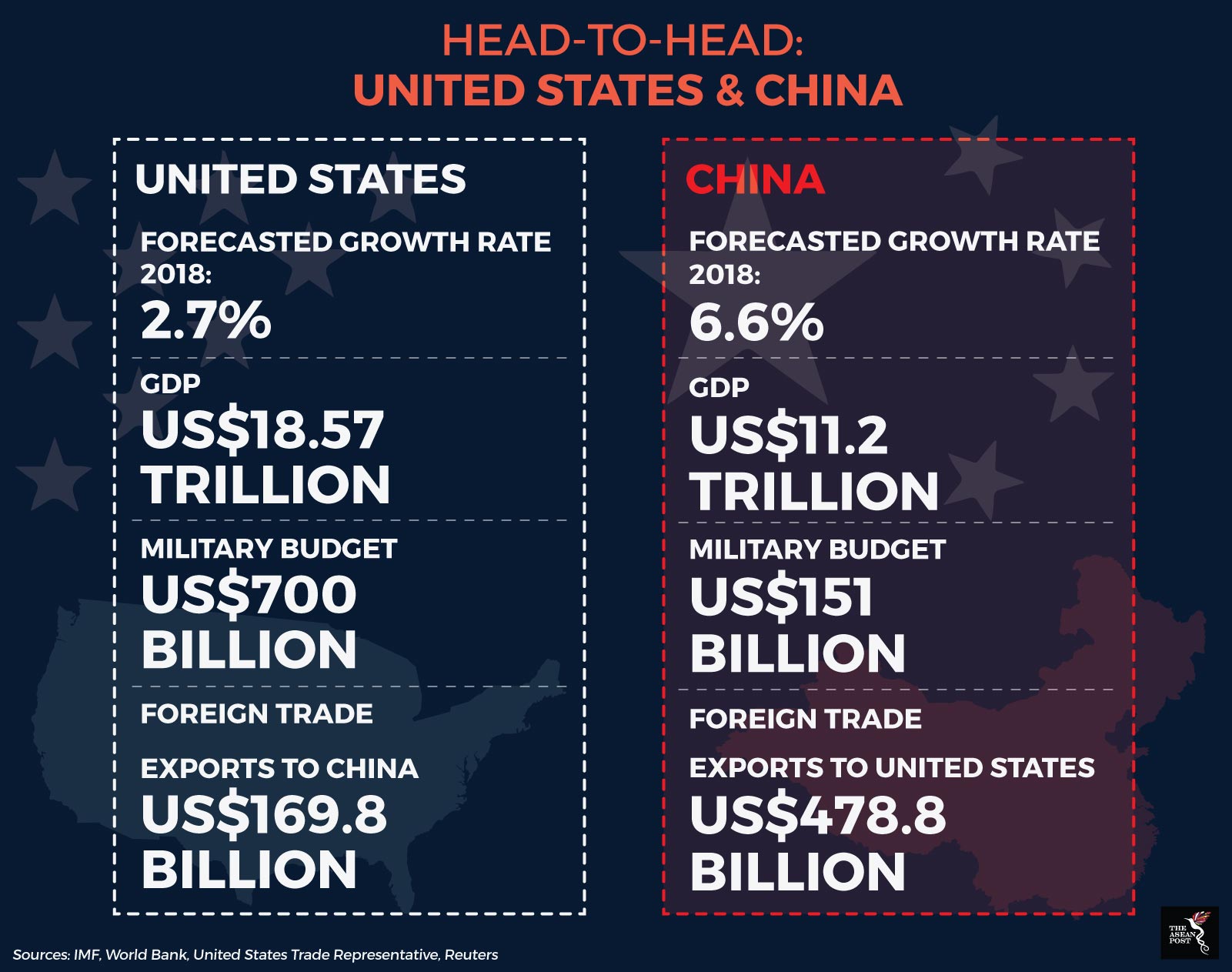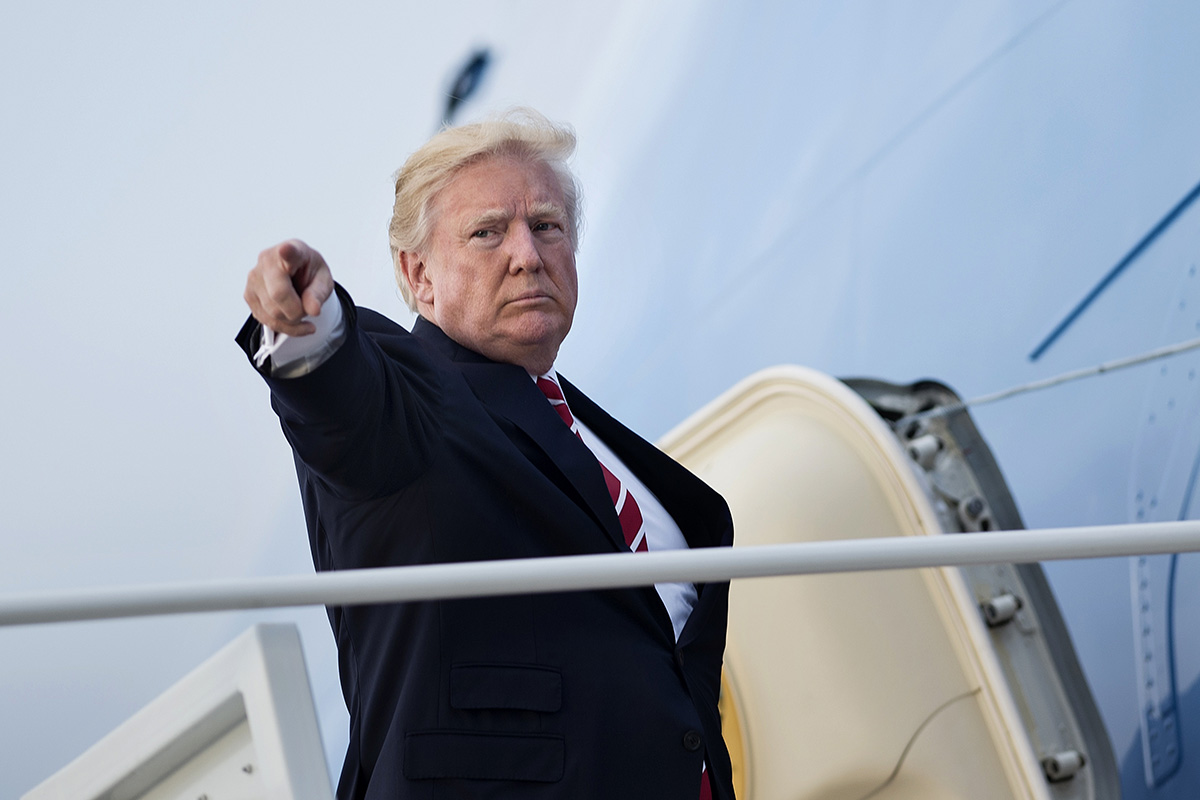Never one to be shy at taking shots at China, United States (US) President, Donald Trump has rocked the boat again with his recent speech at the World Economic Forum in Davos last month. In his speech, Trump mentioned, “The US will no longer turn a blind eye to unfair economic practices including massive intellectual property theft, industrial subsidies and pervasive state-led economic planning.”
Trump’s speech caused concern for some bankers and analysts that a trade war between China and the United States might break out.
Trump’s election campaign throughout 2016 was littered with rhetoric critical of China. According to Hong-Kong based media company, Phoenix Television, they counted that Donald Trump criticised China a total of 235 times throughout his presidential campaign. Ever since he became president, the Chinese-bashing rhetoric has died down a bit indicating that it could merely have been to gain votes.
However, recent moves by Donald Trump against China has led to some parties becoming increasingly concerned that it may not be just election rhetoric after all.
It first began at Trump’s State of the Union address in January when he referred to China as a “rival” that challenges US interests. Later that month, the United States imposed tariffs on imports of solar panels and washing machines, both industries heavily dominated by China. According to Capital Economics in a report in January, up to recently, China was the biggest exporter of solar panels to the US. According to the Guardian last month, Trump’s commerce secretary Wilbur Ross’s response to the tariffs have raised fears of a tit-for-tat trade war. “Every time you take a trade action, there is the possibility of the other side taking a trade action in retaliation.”

CNN reported in January that the US will impose a 30% tariff on foreign solar panels. These protectionist measures by the American government may not only affect China but could also affect some countries in Southeast Asia as well. According to a January 2018 Capital Economics paper, it was revealed that in order to circumvent US tariffs that were imposed in 2012, China relocated most of its solar panel assembly business to Malaysia. Inadvertently, Malaysia is impacted by this move as solar exports to the United States makes up to 0.8% of the country’s GDP.
Meanwhile, the impact of tariff increases will also be felt by Vietnam. Vietnam is the second largest exporter of washing machines to the United States. However, this only makes up around 0.1% of Vietnam’s GDP.
While the effects of these tariffs on Southeast Asian countries aren’t huge, they indicate that there are spillover effects from the United States’ punishment of China. Gareth Leather, a senior Asia economist for Capital Economic wrote in January 2018, that the risk is what Trump might follow up with after this as this move by the US “…marks a sudden change in US policy.”
There are also fears that tensions could escalate elsewhere. Increased hostility between the two nations could possibly affect the geopolitical stability and security of the ASEAN bloc. According to Dr Michael J Green, Director of Asian Studies at Georgetown University who spoke at the ISEAS Regional Outlook Forum in January 2018, the disunity displayed by ASEAN countries after Beijing’s rejection of the United Nations’ Convention on the Law of the Sea tribunal decision is a “…disturbing precedent.”
As a result of the ongoing conflicts in the South China Sea, ASEAN countries often have to pick a side between the two to ensure their own economic and strategic interests. According to Dr. Green, ASEAN’s centrality ensures the moderation of the two powers. However, if tensions continue to increase between China and the United States, efforts to protect their own interests will intensify as both countries have huge strategic interest in the South China Sea. This could affect ASEAN’s centrality and destroy ASEAN unity as member countries will be forced to pick a side.
As President Trump increases his rhetoric against China, President Xi Jinping is right in saying that they need to end their Cold War mentality. Further escalation of the conflict can only cause more harm than good.
Recommended stories:
